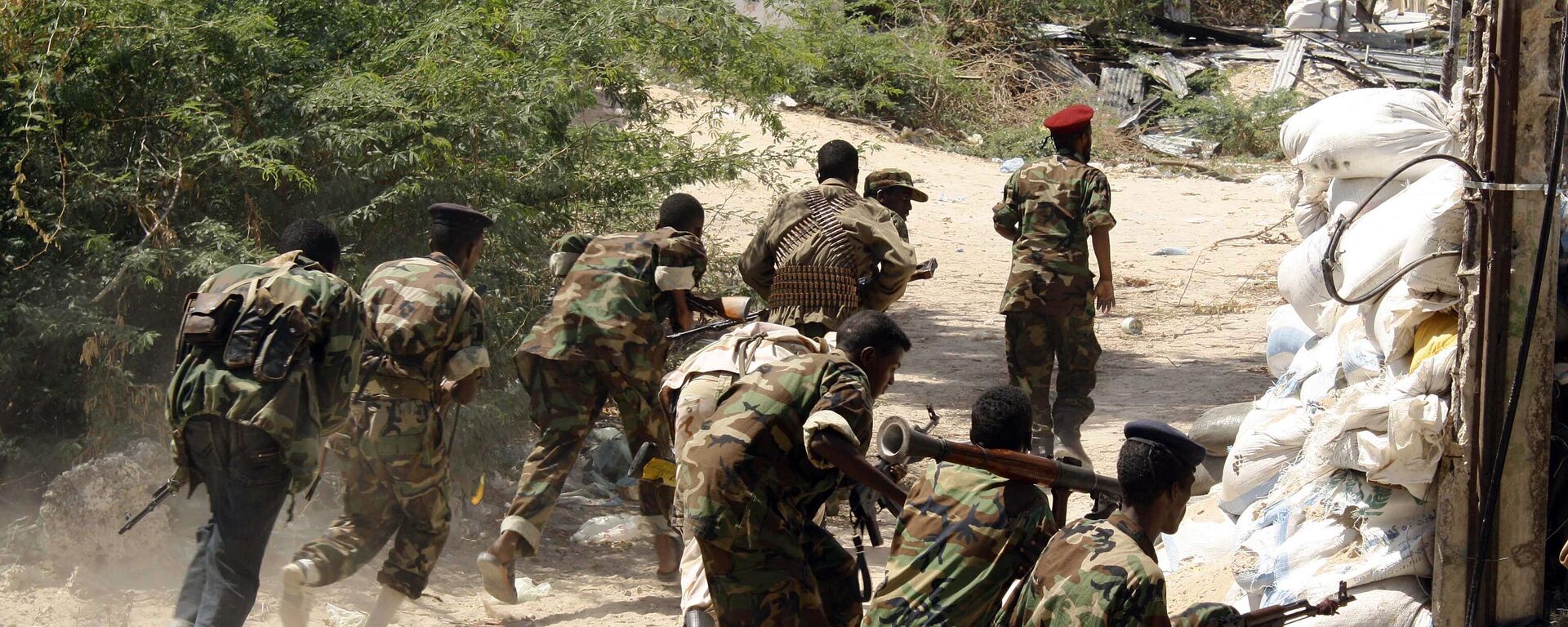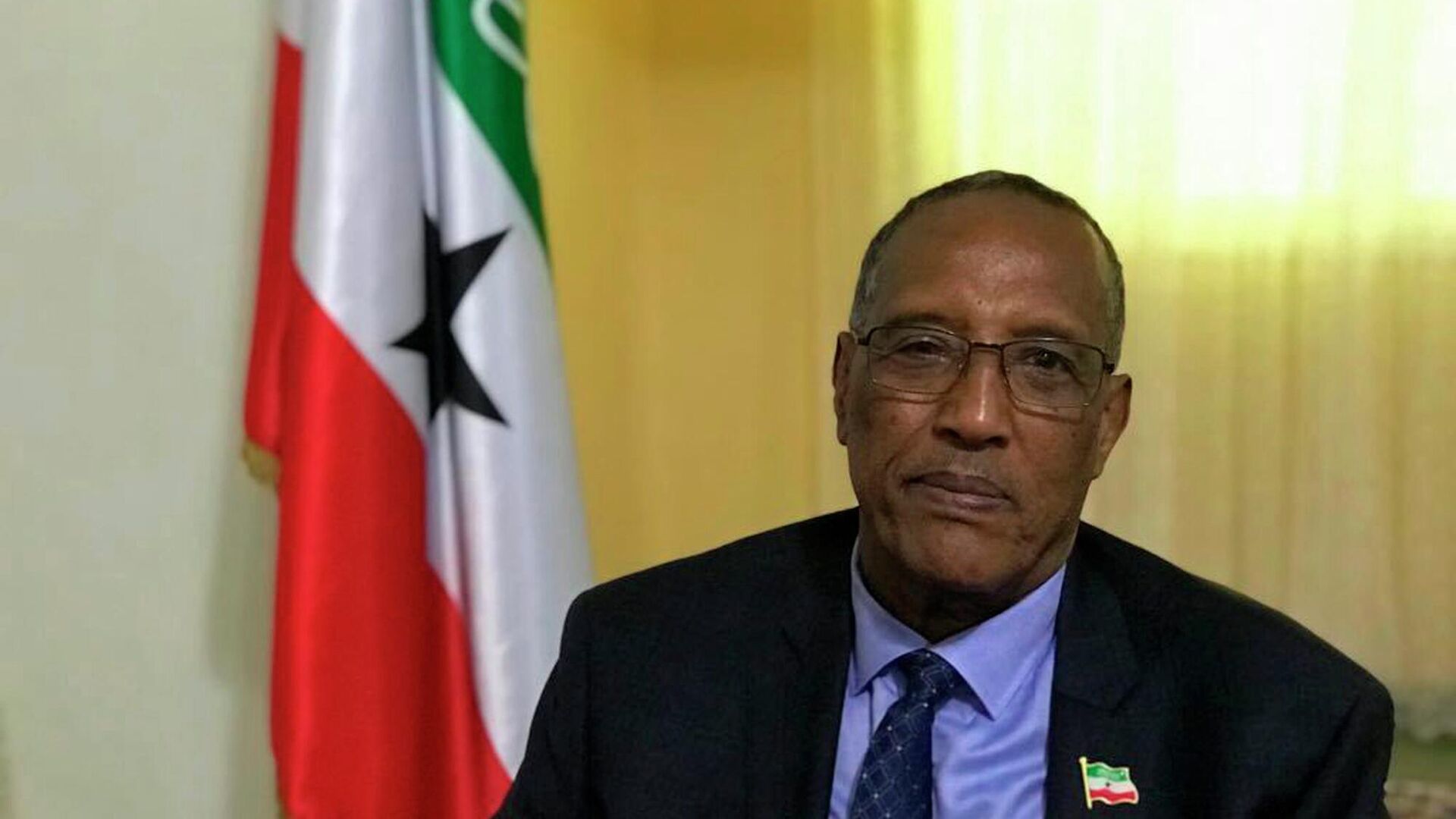https://sputnikglobe.com/20221002/somaliland-presidents-term-extended-as-result-of-parliamentary-vote-1101428004.html
Somaliland President's Term Extended as Result of Parliamentary Vote
Somaliland President's Term Extended as Result of Parliamentary Vote
Sputnik International
The self-proclaimed Republic of Somaliland, in the northern part of the Horn of Africa on what used to be the colony of British Somalia, announced its... 02.10.2022, Sputnik International
2022-10-02T09:16+0000
2022-10-02T09:16+0000
2023-02-14T14:09+0000
africa
somaliland
east africa
horn of africa
president
https://cdn1.img.sputnikglobe.com/img/07e6/0a/02/1101431626_0:59:2000:1184_1920x0_80_0_0_824f2b8b145e88349aa5b12f1a2a51ba.jpg
On Saturday, the self-proclaimed Republic of Somaliland voted to extend President Muse Bihi Abdi’s term by two years, according to Somaliland senate’s chairman Saleeban Mahmoud Aden.The senate’s chairman said that the votes were 72-1 in favor of extending the term.Abdi took office in 2017, his first term out of two possible was scheduled to end this November.On 24 September Somaliland's presidential elections were officially postponed until 2023 “because of lack of time, technical and financial constraints," the Somaliland National Electoral Commission (SLNEC) tweeted.Earlier, opposition parties expressed their concerns that the president was going to seek a term extension by creating circumstances that would give him opportunity to do so. These concerns resulted in protests in August.In the middle of August, hundreds of demonstrators, led by the president's opposition filled the streets of Somaliland’s capital Hargeisa and the cities of Burao and Erigavo.The protesters were chanting anti-government slogans and waving placards saying “Hold the election on 13 November 2022”.Somaliland, a region of almost 4 million people, located in northern Somalia, declared itself an independent state in 1991. Though not officially recognized by any country or international organization, Somaliland has a government, currency, army and electoral system.
https://sputnikglobe.com/20220826/why-us-re-entry-wont-solve-somalias-security-problem--how-russia-can-save-the-day-1100025298.html
africa
somaliland
east africa
horn of africa
Sputnik International
feedback@sputniknews.com
+74956456601
MIA „Rossiya Segodnya“
2022
News
en_EN
Sputnik International
feedback@sputniknews.com
+74956456601
MIA „Rossiya Segodnya“
Sputnik International
feedback@sputniknews.com
+74956456601
MIA „Rossiya Segodnya“
somaliland, east africa, horn of africa, president
somaliland, east africa, horn of africa, president
Somaliland President's Term Extended as Result of Parliamentary Vote
09:16 GMT 02.10.2022 (Updated: 14:09 GMT 14.02.2023) The self-proclaimed Republic of Somaliland, in the northern part of the Horn of Africa on what used to be the colony of British Somalia, announced its independence from Somalia in 1991. Somaliland now has a multi-party system and its presidents are elected for five-year terms and can serve for a maximum of two terms in a row.
On Saturday, the self-proclaimed Republic of Somaliland
voted to extend President Muse Bihi Abdi’s term by two years, according to Somaliland senate’s chairman Saleeban Mahmoud Aden.
The senate’s chairman said that the votes were 72-1 in favor of extending the term.
Abdi took office in 2017, his first term out of two possible was scheduled to end this November.
On 24 September Somaliland's
presidential elections were officially postponed until 2023 “because of lack of time, technical and financial constraints," the Somaliland National Electoral Commission (SLNEC) tweeted.
Earlier, opposition parties expressed their concerns that the
president was going to seek a term extension by creating circumstances that would give him opportunity to do so. These concerns resulted in protests in August.
In the middle of August, hundreds of demonstrators, led by the
president's opposition filled the streets of Somaliland’s capital Hargeisa and the cities of Burao and Erigavo.
The protesters were chanting anti-government slogans and waving placards saying “Hold the election on 13 November 2022”.

26 August 2022, 13:12 GMT
Somaliland, a region of almost 4 million people, located in northern
Somalia, declared itself an independent state in 1991. Though not officially recognized by any country or international organization, Somaliland has a government, currency, army and electoral system.



